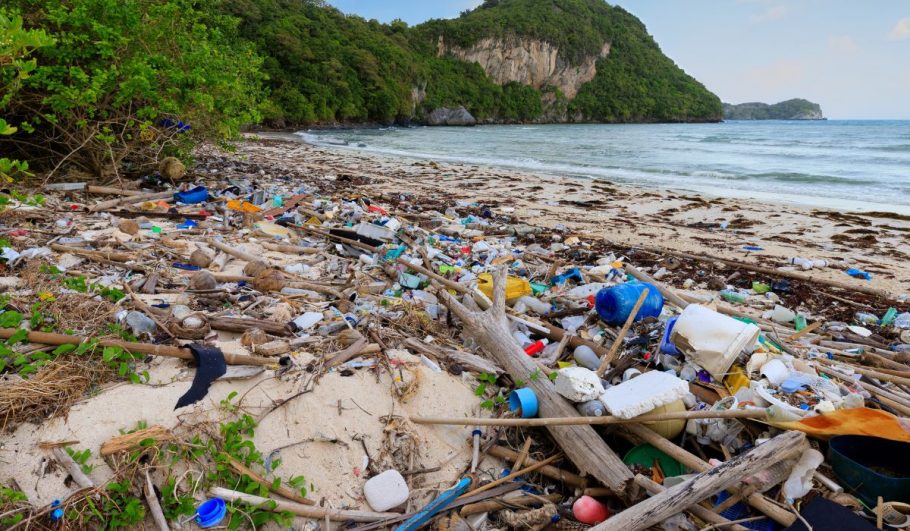Welcome to our blog about the IELTS Cue Card! This is your main source of information, giving you a thorough understanding of IELTS Speaking Task 2. Here we are going to explore the secrets behind the Cue Card, which is an important part of IELTS examination. The IELTS Cue Card, which is also called the Candidate Task Card, belongs to the IELTS Speaking Test. It’s part of Task 2 and looks like a small card with one topic you must speak on it. This card has particular instructions or questions associated with that particular topic too.
As soon as you get the cue card, you have exactly 1 minute to prepare your response. You can write down notes using the paper and pencil provided. Your talk should go on for around 2 minutes until the examiner tells you to stop. In the final part, the examiner could ask you one or two questions. The whole cue card task takes around 3-4 minutes, this includes your time for preparing.
Goa: Describe a Time When You Saw a Lot of Plastic Waste
Introduction
Regretfully, plastic garbage is becoming a significant hazard and is frequently observed in our environment.
I will talk about how I was disappointed to find plastic waste on a recent visit to a tourist spot. There’s a well-known beach not too far from my town where people love to boat and have picnics.
Where did you go and with whom?
Last summer, my family and I went to Goa for a vacation.
What Happened?
As we were walking along the shoreline, I was disheartened to see large amounts of plastic waste littering the sand. Plastic bottles, bags, food containers, straws – there was such an immense volume of plastic that had washed up or been left behind by beachgoers. It seemed to stretch down the beach for miles.
How did you feel?
I even saw plastic debris floating in the ocean and along the tide line. It was upsetting to see the negative impact that plastic pollution was having on such a naturally beautiful place. The volume of non-biodegradable plastic waste made me realize just how massive and pervasive our plastic consumption has become. Seeing it assembled in such a pristine setting drove home the need to reduce plastic use and properly dispose of or recycle plastic products.
What did you do after you saw it?
The experience motivated me to become more mindful of my plastic waste footprint. I also picked up as much plastic as I could while beachcombing during our vacation, to try and make even a small difference. However, it was clear that more systemic changes are needed to reduce the amount of plastic that ends up polluting our oceans and beaches.
Shimla: Describe a Time When You Saw a Lot of Plastic Waste
Introduction
Recently, I visited Shimla, a hill station in Himachal Pradesh. It is a really popular tourist destination. Plenty of Bollywood movies have been filmed in Shimla. During these summer vacations, my parents and I went there to get out of the scorching heat of Delhi.
Where and when did you see plastic waste?
There, while travelling we saw huge mountains of plastic waste near the mall road. At first, I thought the problem was the lack of dustbins. However, it was just the tip of the problem.
Why there was a lot of plastic waste?
On my visit, I noticed plastic bottles, bags, food packaging, cutlery, and other items casually thrown on roads, parks, trails, and other scenic spots. The waste appeared to be accumulating as it wasn’t being cleared frequently. Apart from being an eyesore, it can also clog drains and cause hygiene issues. As Shimla is a hill station, the plastic can ultimately make its way into natural sources like springs, streams, and forests that surround the town. This would severely impact the region’s ecosystem.
What are your thoughts on this?
To address this issue, I think cooperation between the government, neighbourhood companies, citizens, and NGOs is necessary. Long-term management of plastic pollution can be achieved by strict regulations on plastic usage, effective recycling, clean-ups, and awareness programmes aimed at visitors. Additionally, visitors must exercise caution and abstain from using plastic while there.
Yamuna River: Describe a Time When You Saw a Lot of Plastic Waste
Introduction
One experience that stands out in my mind when it comes to witnessing plastic pollution is during a visit to the Yamuna River in Delhi last year. The Yamuna is one of the major rivers flowing through Delhi and is vital to the capital’s water supply.
Where did you see the plastic waste?
when I went to the Yamuna River, I was disheartened to see the extent of plastic waste in and along the riverbanks.
What kind of waste did you see?
There were all kinds of plastic items like bottles, bags, food containers and more floating in the river and strewn along the banks. It seemed like a lot of trash from the nearby localities ended up in the river due to poor garbage disposal. Some waste was also contributed by people doing recreational activities like boating in the river.
Why there was a lot of plastic waste?
The main issue I noticed was a lack of civic sense among many citizens who casually threw waste into the river instead of disposing properly. There was also a lack of clean-up initiatives and enforcement against dumping waste.
What are your thoughts on this?
In my opinion, The government, local communities, and environmentalists need to work harder to clean up the Yamuna and curb plastic usage and dumping. Proper disposal systems are urgently required along with public awareness campaigns.
Other Cue Card:
Describe A Good Law In Your Country
Describe Your Summer Holidays Or Vacations
Describe The Most Photographed Place In Your Country
Describe A Famous Scientist Or Inventor You Know About
Follow Up Questions for Describe a Time When You Saw a Lot of Plastic Waste
What can be done to reduce plastic waste in public places?
I believe authorities need to implement better waste management systems, increased fines for littering, awareness drives, and regular clean-ups. Providing more bins and prompt waste collection is important. Strict laws on plastic use like bans on certain single-use plastics can also help.
Who should be responsible for keeping public places free of plastic waste?
The government and local municipal authorities have the primary duty for proper waste management and cleanliness in public places. But citizens and visitors also need to be responsible for not littering and disposing of waste properly. Businesses that use plastic packaging should support recycling and find alternatives.
Why do you think some people litter in public places?
Lack of civic sense, laziness to find a bin, poor awareness of plastic’s environmental impact, and feeling it’s not their problem – these could be some reasons. Strict penalties and public shaming of litterers may deter some people. But education from a young age is key to changing attitudes.
What kind of pollution does plastic waste cause?
Plastic waste pollutes land and water bodies. It chokes drains and sewers. Plastic releases toxic chemicals as it degrades which enter soil and groundwater. Marine life and ecosystems are worst hit due to plastic in oceans. It also causes visual pollution and hygiene issues. Proper disposal is essential.
What can you as an individual do about this issue?
I can refuse single-use plastic items, carry reusable bags, recycle properly, participate in clean-ups, create awareness on social media, and support movements/organizations working to curb plastic pollution. Following sustainable practices and influencing others will help make a difference.

Manan is a graduate of the esteemed University of Delhi where he cultivated a taste for writing and research. His degree in Bachelor of Management Studies helps him guide students in their academic endeavours. Manan strives to spread excellent study abroad tips that can prove to be helpful.



